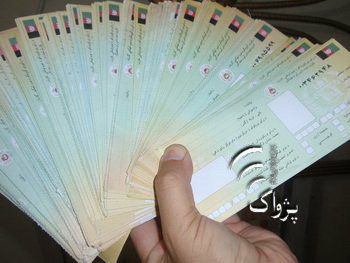By Dean Nelson

An owner of a printing press in Peshawar, Pakistan shows fake ballots printed for the upcoming parliamentary election in Afghanistan. Some candidates have ordered thousands of the illegal ballots. (Photo: PAJHWOK/Syed Sulaiman Khil)
Afghan election officials have been offered as much as $500,000 (£380,000) to falsify returns in the forthcoming parliamentary election by supporters of President Hamid Karzai, independent observers have said. Fraud in Saturday's election is expected to be at least as widespread as it was during last year's presidential election. The observers said individuals were being offered up to $20 each for their votes. The vote was delayed from its original date in May after international allies insisted on reforms to ensure a cleaner election.
But the country's Election Complaints Commission has been weakened since the presidential election. Complaints of ballot fraud will now be addressed at a provincial level, where officials will be more vulnerable to local pressure. Stephen Carter, who has worked as an observer in all Afghan elections since the Taliban regime was ousted in 2001, said poor security would allow Mr Karzai's allies to control voting in many areas. "In the last election a significant proportion of voters were disqualified and this time it won't be any less. There is an electoral process going on which is more about the market place for ballot rigging and how effective one can be at organising fraud," he said. In the presidential election, Mr Karzai was forced to accept a second round run-off with Abdullah Abdullah, the opposition leader, after officials reported widespread ballot stuffing and intimidation. Turnout was 30 per cent, but in insurgency-affected areas it was as low as 10 per cent. In the parliamentary elections, female candidates and their supporters have been subjected to some of the worst violence. According to Human Rights Watch, 10 supporters of Fauwzia Gilani were kidnapped on Aug 26. Five of them were shot dead. More than 2,400 candidates, including 386 women, are standing for 249 seats in the parliament's lower house.



